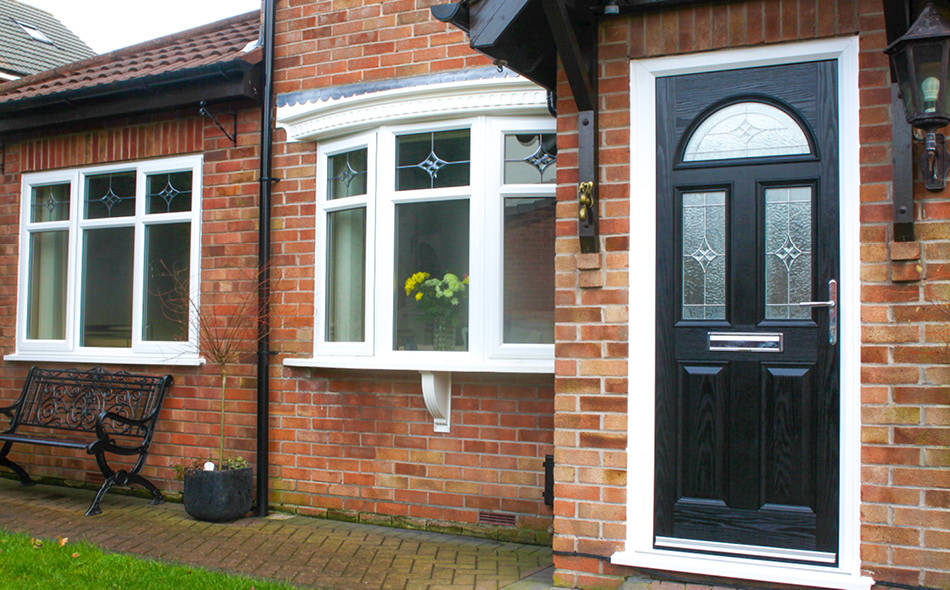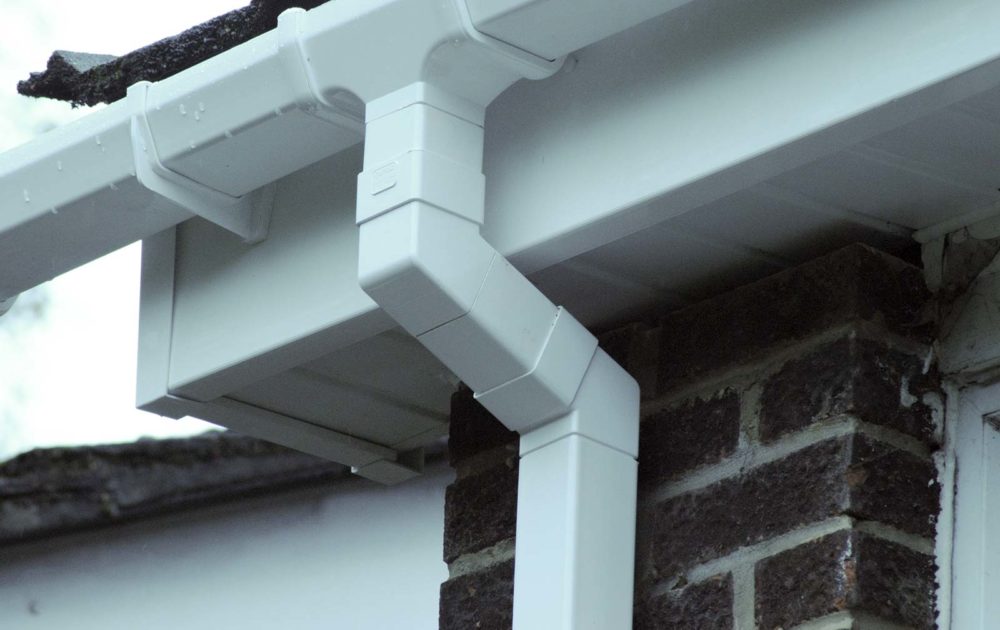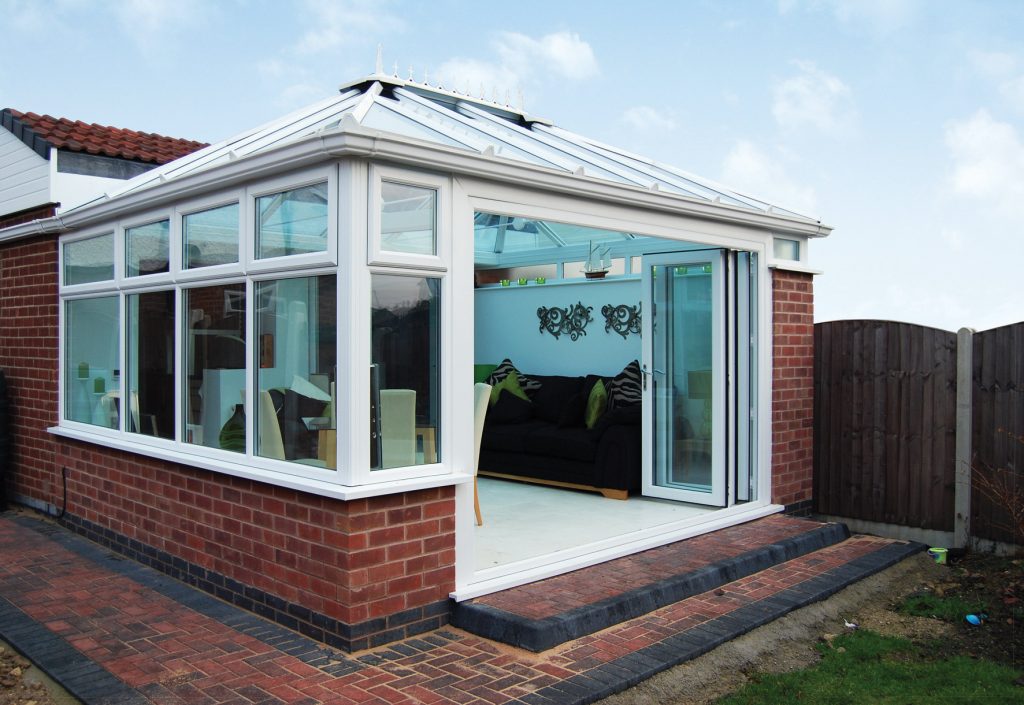What is UPVC: Everything you need to know
20 July 2023
Updated 30 August 2023
What is uPVC?
uPVC (unplasticised polyvinyl chloride) is a type of plastic that is used in a variety of applications, including windows, doors, siding, and roofing. It is a strong, durable, and low-maintenance material that is resistant to weathering, corrosion, and rot. uPVC is also a good insulator, which can help to improve the energy efficiency of your home.
The name “unplasticised” refers to the fact that uPVC does not contain any plasticisers, which are chemicals that are added to some plastics to make them more flexible. The lack of plasticizers makes UPVC more rigid and durable, but it also makes it more difficult to work with.
uPVC is a relatively affordable material, and it is becoming increasingly popular as a building material. It is a good choice for homes in areas with harsh weather conditions, and it is also a good option for those who are looking for a low-maintenance material.
PVC vs uPVC
PVC and uPVC are both types of plastic, but they have different properties. While uPVC stands forunplasticised polyvinyl chloride, PVC stands for polyvinyl chloride, and it is a versatile material that is used in a variety of applications.
uPVC is more rigid due to the lack of plasticisers, which makes it ideal for applications requiring strength and sturdiness, whereas PVC is more flexible and easier to work with.
As a result of the lack of plasticisers, uPVC is a better choice for applications where durability is important, such as windows and doors. PVC is a better choice for applications where flexibility is important, such as wire insulation.
The table below summarises the different properties of uPVC and PVC.
| Property | PVC | uPVC |
| Plasticisers | Yes | No |
| Flexibility | More flexible | Less flexible |
| Durability | Less durable | More durable |
| Weather resistance | Less weather resistant | More weather resistant |
| Applications | Wire insulation, hoses, pipes, etc | Windows, doors, siding, roofing, etc |
Uses of uPVC
Windows and Doors
uPVC windows and doors are a popular choice for many homeowners because they are durable, energy-efficient, and low-maintenance. UPVC is resistant to weathering, corrosion, and rot. UPVC is also a good insulator, which can help to reduce your heating costs, as the windows and doors will retain heat in your home better.

Siding
uPVC siding is a type of exterior cladding that is made from unplasticised polyvinyl chloride.
uPVC siding is available in a variety of colours and styles, so you can find a look that matches your home’s décor.
Guttering and Downpipes
uPVC gutters and downpipes are the most common type of roofline found on UK properties, and this is because the properties of uPVC mean that they can withstand the unpredictable British weather (yes, even the rain!) and therefore are longer lasting.

What’s more, if you’re keen on keeping up your home’s appearance, then they’re also easy to keep clean.
Other uses of uPVC
In addition to windows, doors, siding, and gutters, uPVC is also used in a variety of other applications in homes, including:
- Pipes
- Fittings
- Fencing
- Conservatories
- Garden furniture
- Electrical enclosures

uPVC is a versatile material that can be used in a variety of applications in homes. It is a good choice for applications where durability, weather resistance, and low maintenance are important. But due to its relatively low cost, it’s also a great option if you’re looking for an affordable option.
What are the benefits of using uPVC for doors and window frames?
There are many benefits to having uPVC windows and doors. Let’s take a look at some of the key benefits that you can expect.
- Durability: uPVC windows and doors are very durable and can withstand harsh weather conditions and everyday wear and tear. They are not susceptible to rotting, warping, or cracking, so it can last for many years with minimal maintenance.
- Low maintenance: Using a low-maintenance material like uPVC for your windows and doors makes perfect sense, as they will naturally attract dirt and grime just simply by being outside, and as UPVC requires very little upkeep, you can simply wipe it down with a damp cloth to keep it clean.
- Energy efficiency: uPVC windows and doors, coupled with a high performant glass and double or triple glazed, offers extremely good energy efficiency. Therefore, having uPVC windows and doors in your home can result in lower energy bills.
- Affordability: uPVC is a relatively affordable material, making it a good option for those on a budget. Additionally, because it’s affordable, it also means it’s quite common, which means that in most areas of the UK, having uPVC windows and doors will fit in with your local area, whilst still being able to make them your own by customising the colour, glazing styles, and hardware.
- Appearance: uPVC is available in a variety of colours and styles, so you can find a look that matches your home’s décor. It can also be painted or stained to match your desired look.
- Security: uPVC door and window frames are often more secure than other types of doors and window frames. This is because they are made from a strong material that is difficult to break or pry open. Of course, you’ll want to couple that with a good quality lock as well.
Are uPVC windows and doors dangerous?
uPVC windows and doors are not dangerous. uPVC is a non-combustible material, so it acts as a fire retardant and will not worsen an already worrying situation.
You may also hear that uPVC contains harmful chemicals. Whilst this is true, this is not really an issue during everyday use, as the chemicals are sealed within the unit and are not easily exposed. The chemicals contained become more of an issue during the recycling process. But from a homeowners perspective, there is nothing to worry about.
What uPVC window styles can you get?
There are a wide variety of uPVC window styles available, each with their own benefits. The common styles you’ll come across include:
- Casement windows
- French windows
- Sash windows
- Tilt and turn windows
- Sliding windows
In addition to the styles, you will also have plenty of other customisation options for your new windows and doors, including colour, handles, glazing, locking systems, and level of energy efficiency (single, double, or triple glazed).
If you’re looking to install uPVC products in your home, why not design your windows and doors online?